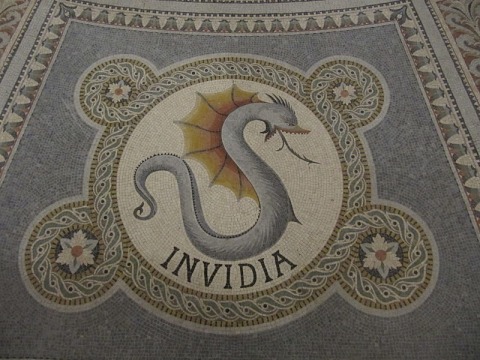
Not all common goods are equally common. In the weak sense, a good is common merely when it is good for everyone, like pure water. Different people in the community may enjoy different amounts of weakly common goods. In fact, if one person grabs more of a weakly common good, then other people have less. For example, I might divert part of the river away from your property and onto mine.
In the strong sense, a good is common when one person's gain is not another's loss, so that our interests literally cannot diverge. The best examples of strongly common goods are the virtues, the goods of character: I don’t become less wise, or less just, or less courageous, just because my neighbor becomes more so.
Yet there is a paradox, for although we can’t really be in competition for strongly common goods, we may feel as though we are. Suppose I envy you for being
wiser than I am. This is plainly irrational, because the greatness of your wisdom doesn’t leave less wisdom for me; I might even gain wisdom from your teaching and example.
But the envious man does not see it that way. Even though the greatness of your wisdom does not diminish the absolute amount of my wisdom, it does diminish the relative amount of my wisdom, for the wiser you are, the lower I rank in comparison, especially in the eyes of others. I may therefore sorrow that we cannot trade places; I might wish that you were less wise, and I were more.
Although we cannot really be in competition for wisdom, we can certainly be in competition for rank, and so, unexpectedly, something that in one sense excludes the very possibility of rivalry in another sense becomes a motive for rivalry.